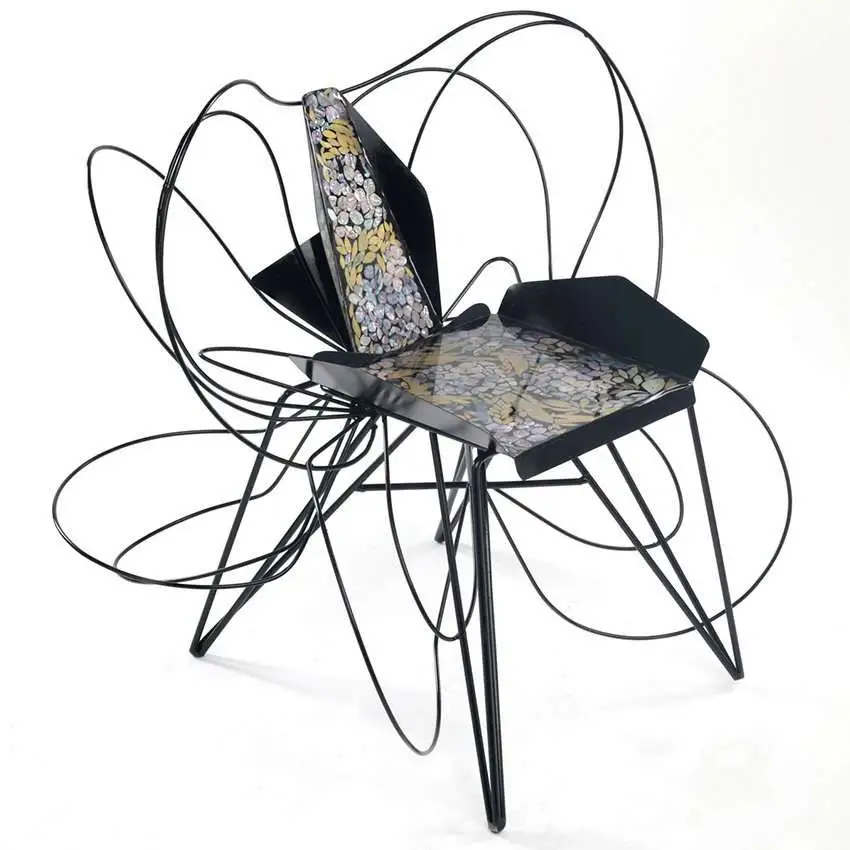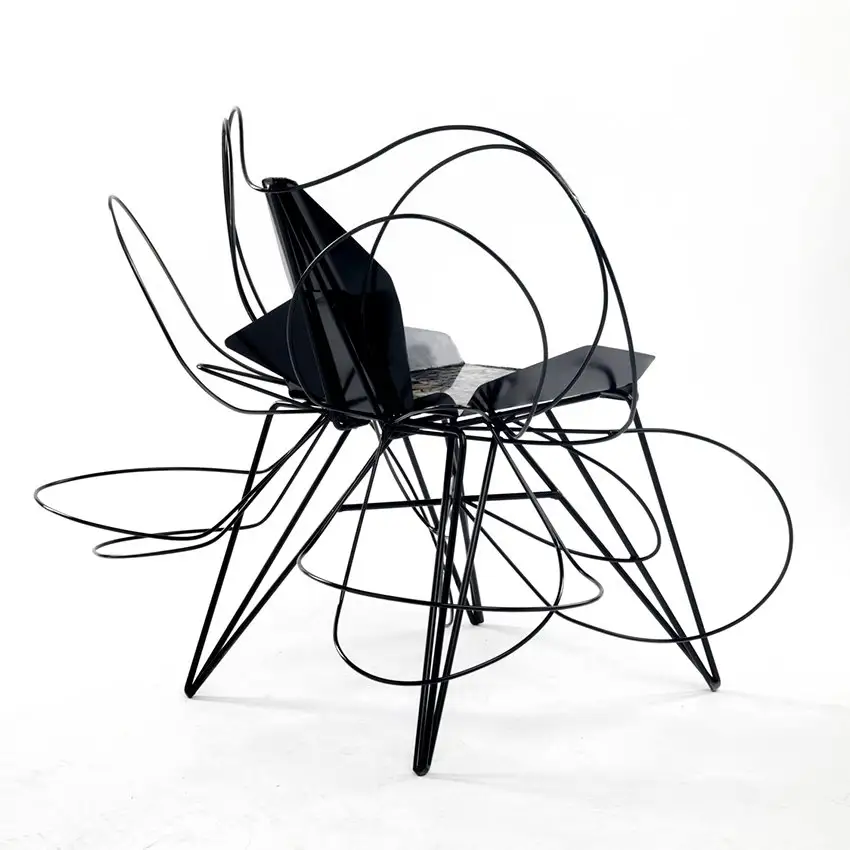reviving traditional Korean craft
Central Saint Martins design student Yejoong Choi has created a series of maximalist chairs with elaborate shapes and exquisite mother-of-pearl detailing. Called ‘Kkoch-Galam’—meaning ‘a river with flowers’—the furniture project brings new life to traditional Korean crafts, namely lacquer and shell inlay, and shows how these specialist techniques can be applied to contemporary design.
‘Traditional Korean artisan practices are currently being phased out,’ says Choi. ‘Traditional crafts get significantly less funding and attention from the government than other areas, and they are only preserved by a limited number of artisans. They are also losing favor with consumers as they fall behind mass-produced goods in terms of functionality and cost.’ Choi’s goal is to rejuvenate these traditional crafts and help rebuild the craft industry.
Spring chair, perspective view
photos by Yejoong Choi
Yejoong Choi’s butterflies on the river
Choi refers to the furniture objects as ‘butterflies on the river’, as their form is inspired by the silhouette of a butterfly sitting on a flower by a river. Using metal wire, the designer expresses this idea through fluid shapes that swirl around the legs and the back of the chair.
The collection also has a seasonal theme and each chair is named after one of the four seasons. Shown here are the Spring and Summer chairs. The patterned shell inlay on each seat represents flower blossoms, typical of each season, falling on the water’s surface. While creating these decorative designs, Choi also explored the connection between traditional seasonal motifs in Korea and William Morris’ floral patterning.
Spring chair, shell inlay detail
maximalist, emotional, and traditional
Choi describes his work as an interaction between maximalist design, emotional design, and traditional craft. Using his maximalist principles, the designer hopes to offer a new way of looking at historical styles. He also wants to make furniture that can be easily and cheaply produced, aligning with the ideals of modernism while proposing a new decorative aesthetic.
The emotional design aspect is Choi’s attempt to inject humor into his furniture. ‘I am not designing the perfect chairs, but a method that can involve many variations,’ says the designer. ‘Emotional design, in my case, gives me richness and variety, not the universal chair.’
Finally, for the traditional craft, Choi analyzed ornamental patterns and the origins of different styles in his free time. This led him to the idea of using industrial production processes to produce furniture that is historically evocative and that uses decoration as a tool for communication.
Spring chair, rear view
Summer chair, front view
Summer chair, rear view










